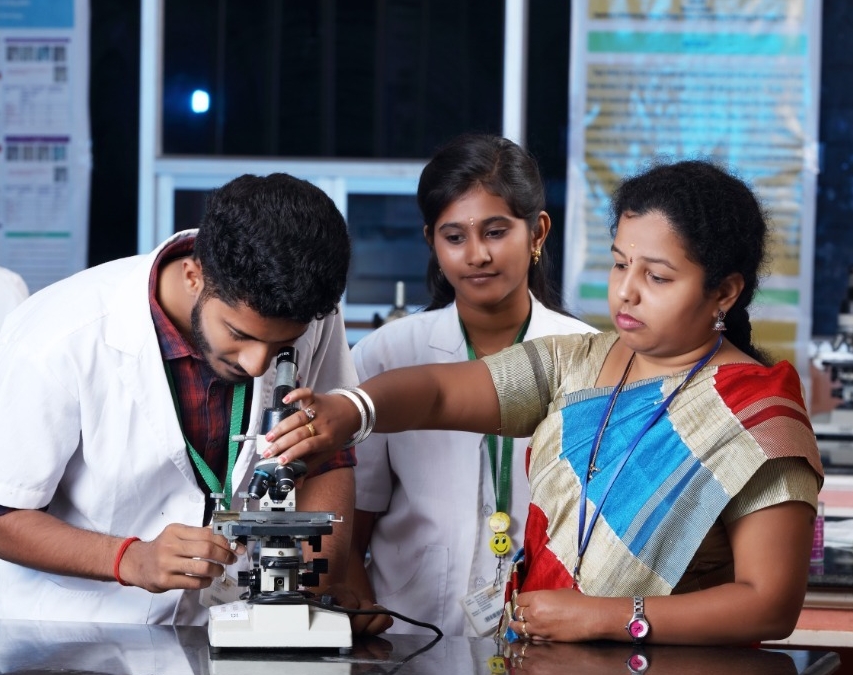
Exploring Emerging Trends & Careers in RA Part 2: Career Pathways and Placement Opportunities

Robotics and automation are transforming industries, from manufacturing to healthcare. In this three-part series, we explore the field’s growth, challenges, and career potential through conversations with:
Dr. Srinivas J, Head of the Department
S. Priyadharshini, Junior Control Engineer, Robonetics Automation Solutions LLP
Dinesh Manikkam, Founder & CEO, READ Automation, Chennai
Q4. What skills do robotics students need to excel in this field?
Srinivas J (HOD):
In robotics, students need a strong foundation in both mechanical engineering and computer science. It’s not just about building robots — you need to know how to program them. Proficiency in programming languages like Python, C++, and MATLAB is essential. But I’d say the most important skill is problem-solving. Robotics is all about finding creative solutions to complex challenges.
S. Priyadharshini (Alumni):
I couldn’t agree more. When I was a student, we were taught the fundamentals, but once I started working, I realized that hands-on experience is key. My advice to students is to learn as much as they can about control systems and automation programming. These are the building blocks in the industry today.
Dinesh Manikkam (Industry Expert):
Students need to focus on both hardware and software aspects. Understanding control systems, mechanical design, and sensor integration is crucial. But as we move forward, I believe knowledge in artificial intelligence and machine learning will give students a huge advantage — robots are becoming smarter, and those who understand AI will be ahead of the curve.
Q5. How do you see the job market for robotics engineers evolving in India?
Srinivas J (HOD):
The job market is growing rapidly. There’s a lot of demand for skilled engineers, especially with industries like manufacturing, healthcare, and agriculture adopting automation. In addition to traditional roles, we’re also seeing a rise in research and development opportunities and roles in AI and machine learning within robotics.
S. Priyadharshini (Alumni):
I’ve seen a lot of change in the last few years. Robotics engineers are being hired across industries — not just in traditional tech companies, but in startups and established industries like automotive and healthcare as well. The scope is broadening, and it’s a great time for new graduates to enter the field.
Dinesh Manikkam (Industry Expert):
India’s job market for robotics engineers is expanding quickly. As automation spreads to more industries, the need for skilled professionals in robotics is growing. From startups in the tech space to large-scale companies in manufacturing and healthcare, there’s no shortage of opportunities.
With industries rapidly adopting automation and intelligent systems, the demand for robotics professionals is growing across sectors. From startups to established giants in healthcare, agriculture, and manufacturing, the scope for robotics engineers in India has never been broader. But what lies ahead for the field itself? In Part 3, we look beyond the present into the evolving landscape of robotics — exploring emerging trends, disruptive technologies, and what the future holds for students and professionals in this exciting domain. Next Up: Part 3 – Emerging Trends and Future Prospects







